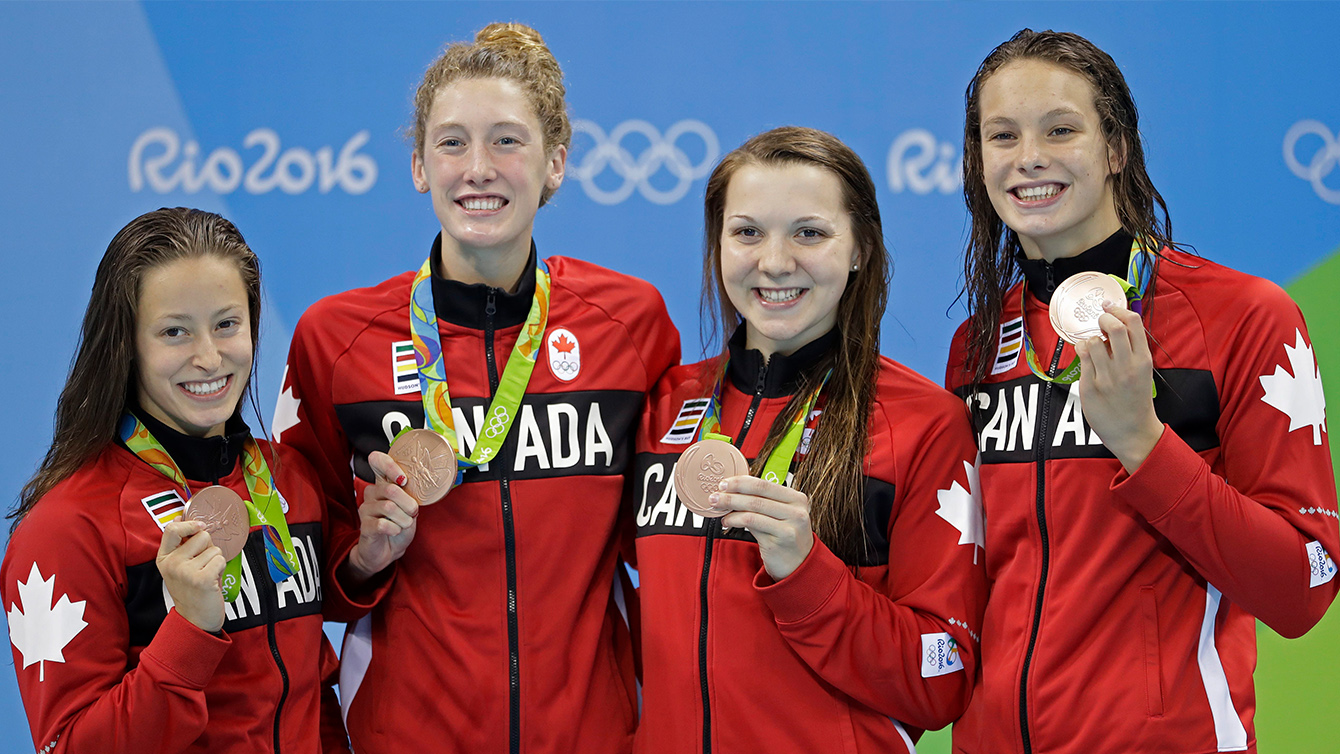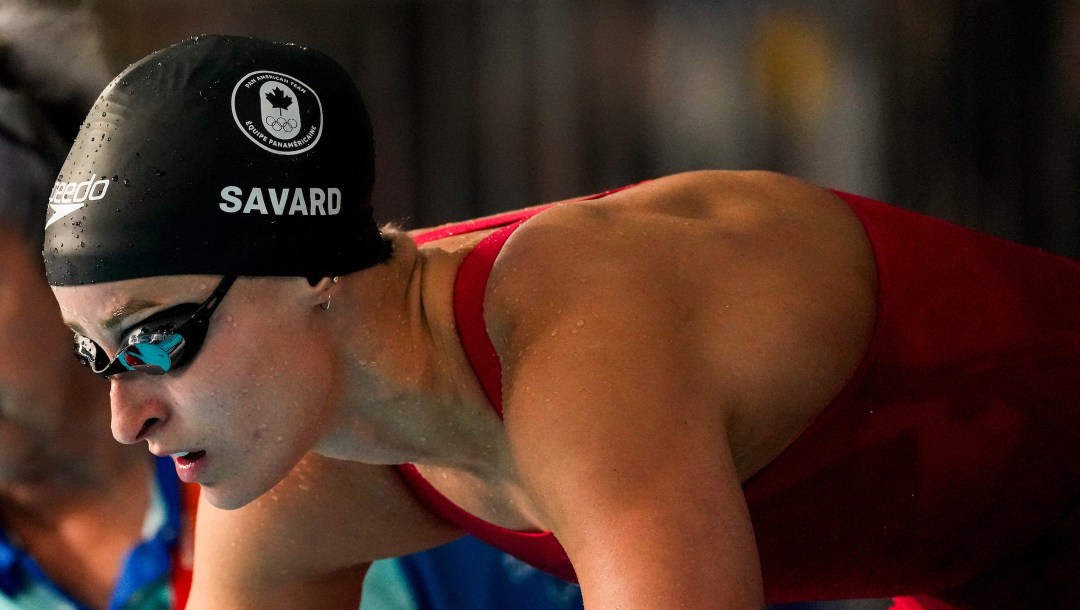Propulsion: For Katerine Savard, having dreams is important, even if they don’t all come true
Butterfly and freestyle specialist Katerine Savard has competed at three Olympic Games. She won a bronze medal in the women’s 4×200 m freestyle relay at Rio 2016, as well as taking part in the 200m freestyle semifinal. At Tokyo 2020, Savard swam in the 100 m butterfly semi-final, as she had done at London 2012, in addition to swimming two relays, including the women’s 4×200 m freestyle relay heats, an event in which Canada took fourth place in the final.
It was only about a year before her Olympic debut at London 2012 at the age of 18 that Savard began to believe in her chances of becoming an Olympic athlete.
“Looking back, I think maybe I wasn’t emotionally mature enough to experience the Olympics. I felt really intimidated. At 18, I was thrown in there with very little international experience. I just remember standing on the edge of the pool, looking at all the swimmers and being in awe of them. I think I felt out of place, more like an imposter,” Savard said on Propulsion, Team Canada’s French language podcast.
The experience she gained at her first Games proved key for the Rio 2016 Games. At the Canadian Trials, she overcame the disappointment of failing to qualify for her favourite event, the 100m butterfly, to finally earn her Olympic ticket in the 200m freestyle. This unexpected qualification took her all the way to the Olympic podium in the Women’s 4x200m freestyle relay. The years that followed, however, brought many questions and challenges.

“When I came back from those Games, it was as if I’d had some sort of mental downturn. I thought, ‘What’s my dream now?’ I didn’t have a dream anymore. I started swimming just because I was a swimmer. I’d won an Olympic medal, the next Olympics were four years away and I was putting a lot of pressure on myself. I didn’t enjoy swimming at all.”
A break of several months, during which she took the opportunity to travel, proved beneficial. “If it hadn’t been for that break in 2018, I wouldn’t still be here, aged 30 in 2024.”
Stepping back from her sport also enabled her to pinpoint what she needed to do if she wanted to pursue high-level sport in the right frame of mind.
“I realized that deep down, I didn’t have any dreams, I didn’t have any goals. It was a turning point. I found myself with dreams and goals. It wasn’t to go back to the Olympics right away. It was small dreams, small goals, a little more gradual. Then, finally, I rediscovered the love I had for the sport, I rediscovered the desire to perform. And then I headed off to the Tokyo 2020 Games.”
This year, her goal was to qualify for her fourth Olympic Games, but she didn’t make it. With great courage and vulnerability, the now 31-year-old athlete shared a touching message on social media:
“Yes, I’m in a lot of pain. Yes, I didn’t succeed in my dream. No, I didn’t fail. Yes, I’m proud of my career, but yes, I’m disappointed with my week. Yes, I really believed in it. No, I have no explanation. No, I don’t know if it was the last time in my life I’d ever stand on a starting block. Yes, I still love swimming. Yes, my races are over for the week. No, I don’t regret my change of coach. No, I don’t know if I’ll be living in Quebec City or Montreal. No, I don’t know if I’ll be teaching in the next few days, because yes, I’m also an elementary school teacher. No, I don’t know what my next life dreams will be. Yes, I’m lost. Yes, I know I’ll be proud of myself in the end. No, not all dreams come true, but yes, it’s important to dream big.”
While she doesn’t yet have all the answers regarding her future, she is fully aware of the challenges posed by stepping away from high-level sport.
“I’m asking myself a lot of questions about my life afterwards. I’ve experienced so many emotions with sport that I’m thinking, how am I going to find something I love that much again? I’m realizing that it may never be the same again, and that’s scary.”
With a background in pre-school and elementary education, however, she has found a field other than sport in which she feels at home.
“I always wanted to be a teacher, even before I wanted to be an athlete. So that goes back quite a long way. I remember when I was very little, I used to play teacher all the time. I love being with kids, I love teaching them, sharing knowledge, all that stuff.”
As a teacher, she wants to help children have dreams. One thing’s for sure, her story is sure to inspire many.
To listen to Katerine Savard’s full episode, check out Propulsion wherever you get your podcasts.

The first season of Propulsion, a French language podcast by Team Canada, focuses on the inspiring stories of the women of Team Canada. Tune in as Olympian and host Justine Dufour-Lapointe dives deep with Team Canada athletes Katerine Savard (swimming), Leylah Fernandez (tennis), and Jennifer Abel (diving).


